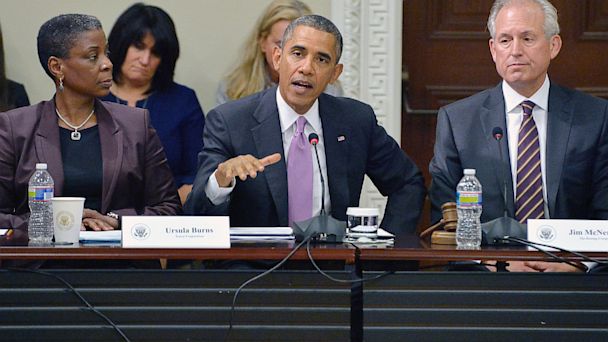Fact Check: Is Obamacare Slowing Growth of Health Costs?

(Jewel Samad/AFP/Getty Images)
Is Obamacare helping to lower health care costs or drive them up?
It's one of the central questions of debate as implementation of the law moves forward. And the answer, unsurprisingly, is far from cut and dry.
But today President Obama made one of his boldest claims yet on that question: asserting that the Affordable Care Act, in just three years, has helped slow the growth of health costs to the lowest rates in decades.
"Thanks in part to the Affordable Care Act, also known as 'Obamacare,' the cost of health care is now growing at the slowest rate in 50 years," Obama said in remarks to his Export Council.
"Just yesterday CMS [Centers for Medicare and Medicaid Services] estimated that health care spending grew at it second-slowest rate ever in 2012, will grow at its third-slowest rate ever in 2013, grew at its slowest rate in 2011," he said. "So the three years since 'Obamacare' passed, we've seen the slowest growth in health care costs on record."
The president made the claim as part of a broader case that his policies - including helping to stabilize health costs - have made American businesses more competitive.
Obama's claim on the historically low growth rates for health costs is true, according to the nonpartisan Kaiser Family Foundation and CMS data. National health spending grew by 3.9 percent from 2009 through 2011, and near 4 percent in 2012; it's projected to grow at a similar rate through 2013. Those are the lowest rates since the government started keeping track in 1960.
But many independent experts believe the slowdown is largely due to the economy and a contraction of spending during the recession. The role of Affordable Care Act has been limited and hard to measure, they say.
"I think the ACA is responsible, indirectly, for a good bit of what the economy doesn't explain," said Larry Levitt, a leading analyst with the Kaiser Family Foundation. "But the precise impacts can't be proven."
An April 2013 Kaiser analysis concluded "the vast majority (77 percent) of the recent decline in the health spending trend can be attributed to broader changes in the economy. At the same time, however, there are also indications that structural changes in the health system may be playing a modest role as well."
Experts note that changes under ACA could ultimately increase the growth rate of health care costs initially, since more people will be covered (and paying for) health plans and treatments. The continued economic recovery is expected to contribute, as well, as more Americans have increased income to spend on health care.
As for cost savings provisions included in Obamacare, Kaiser says some of those have not yet been realized.
"The bulk of the Medicare savings included in the ACA…have yet to be realized and will lower the future growth in spending in that program. Changes in the delivery system … may also yield results and help to keep 'excess' health costs down in public programs, as well as in private insurance," the group concluded. "In addition, the ACA's tax on high cost, 'Cadillac' employer-sponsored health plans, scheduled to take effect in 2018, is expected to trim the cost of benefits and could lead to lower overall health spending as well."
House Speaker John Boehner and many Republicans insist the health care law, including its taxation provisions, will on balance increase health costs across the board.
"The law is a train wreck, and it's going to raise costs," Boehner said today. "It's destroying American jobs, and it must go."
Health care spending growth is expected to accelerate in the next few years as the economy improves, Obamacare adds more Americans to insurance rolls, and the U.S. population continues to age and seek more medical services.
CMS projects expected growth of health costs in 2014 will be 6.1 percent, with an average projected growth of 6.2 percent per year thereafter.